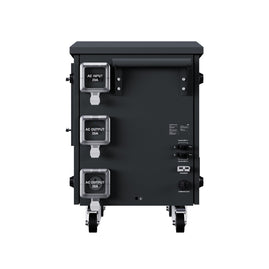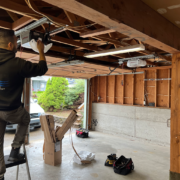
Artificial intelligence (AI) is revolutionizing the way we interact with technology, and its integration into smart home automation systems is reshaping the way we live, work, and play. By leveraging AI algorithms, machine learning techniques, and natural language processing, smart homes are becoming more intelligent, adaptive, and responsive to the needs and preferences of their occupants. This article explores the transformative role of artificial intelligence in smart home automation, examining its applications, benefits, and implications for the future of intelligent living.
Enhancing Home Automation with AI Technologies
At the heart of smart home automation lies the integration of artificial intelligence technologies that enable devices and systems to learn, adapt, and make autonomous decisions based on user behavior and environmental data. From virtual assistants like Amazon Alexa and Google Assistant to smart thermostats, lighting controls, and security cameras, AI-powered devices are transforming the way we interact with our homes, making them more intuitive, efficient, and personalized to our needs.
Personalized Experiences and Predictive Insights
One of the key benefits of integrating AI into smart home automation is the ability to deliver personalized experiences and predictive insights that anticipate and adapt to the needs of individual users. By analyzing data from sensors, cameras, and other connected devices, AI algorithms can learn user preferences, habits, and patterns over time, allowing them to automate routine tasks, adjust settings, and make recommendations that enhance comfort, convenience, and efficiency.
Advancing Home Security and Surveillance
In addition to enhancing convenience and comfort, artificial intelligence is also playing a crucial role in advancing home security and surveillance capabilities. By leveraging computer vision, facial recognition, and anomaly detection algorithms, AI-powered security cameras can identify and alert homeowners to potential threats or suspicious activities in real-time, enabling proactive response and intervention to mitigate risks and ensure the safety and security of the home and its occupants.
Optimizing Energy Management and Efficiency
Another area where artificial intelligence is making a significant impact in smart home automation is optimizing energy management and efficiency. By analyzing data from smart meters, weather forecasts, and occupancy sensors, AI algorithms can dynamically adjust heating, cooling, and lighting systems to minimize energy consumption, reduce utility bills, and lower carbon emissions without sacrificing comfort or convenience.
Addressing Ethical and Privacy Concerns
Despite its numerous benefits, the integration of artificial intelligence into smart home automation also raises important ethical and privacy concerns regarding data security, algorithmic bias, and user consent. As AI-powered devices collect and analyze vast amounts of personal data, it’s essential for homeowners to be mindful of the risks and implications of sharing sensitive information with these systems and to take proactive steps to protect their privacy and security.
Conclusion
Artificial intelligence is transforming the landscape of audio-visual systems, offering unprecedented levels of convenience, efficiency, and personalization to homeowners around the world. By harnessing the power of AI technologies, we can create intelligent living spaces that adapt to our needs, enhance our safety and security, and promote sustainable and responsible use of resources. As an audio-visual company committed to innovation and excellence, we are excited to be at the forefront of this technological revolution, helping homeowners unlock the full potential of AI-powered smart homes to create a better, smarter, and more connected future for all.















